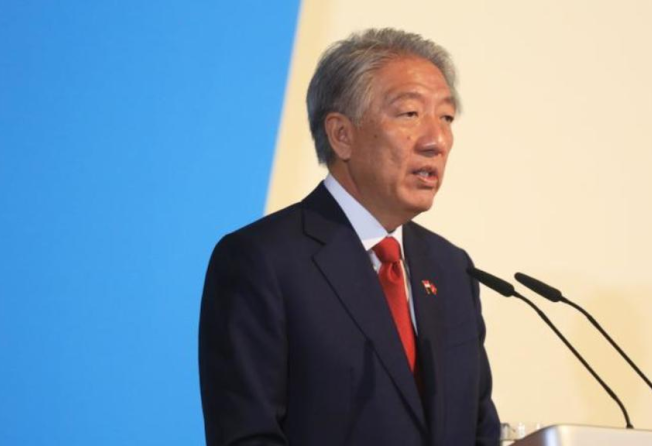All of Singapore’s government services will go digital by 2023, with more public servants to be trained in data analytics
From paying bills and applying to public housing, to buying a house or a car, up to 95 per cent of transactions would be available through government websites

By Cynthia Choo
By 2023, Singapore’s citizens and businesses will be able to access all Government services anytime, anywhere on an Internet-enabled device.
Citizens will also be able complete 90 to 95 per cent of transactions entirely on government websites.
Fresh from announcing the Digital Readiness Blueprint to help every Singaporean navigate a digital future of cashless payments and other innovations last Saturday, the Government laid out its own targets in the Digital Government Blueprint.
For instance, the SingPass Mobile app to be implemented later this year will enable users to access government services without the need for physical tokens or SMS passwords, said Deputy Prime Minister Teo Chee Hean at the start of the Smart Nation Innovations Week at the Marina Bay Sands.
The app will allow Singaporeans to “pay our bills or sign documents online, apply for public housing”, and even “buy or sell a house or a car”, said Mr Teo.
They will add to existing transactions that can be completed entirely online, such as the filing of income tax and accessing of library resources.
Some key transactions, like collecting the keys to one’s home, however, will still require physical collection.
The five-year blueprint was drawn up by the Smart Nation Digital Government Office (SNDGO) to make public services and information more digitally accessible, and create a national digital identity.
“It is a statement of our ambition to better leverage data and harness new technologies, and to drive broader efforts to build a digital economy and digital society, in support of Smart Nation,” said Mr Teo, who is also Coordinating Minister for National Security and Minister-in-charge of the Civil Service.
Besides allowing citizens to access government sites more securely through a unified application and payments platform, the Government is also looking to extend the use of MyInfo – a digital vault of personal data – to more businesses.
MyInfo enables users’ personal details to automatically populate online forms and saves the effort of having to repeatedly submit supporting documents.
Through the MyInfo Developer and Partner Portal, which was launched in December last year, businesses can now engage in transactions that are more fuss-free.
“Our national level-projects, such as the National Digital Identity and the e-payments infrastructure, not only enable more secure and convenient digital services in Singapore, but also allow businesses to develop innovative new services and business models that can apply across borders and economies,” said Mr Teo.
Other targets the Government has set include a 75 to 80 per cent satisfaction rate among citizens who use its digital services by 2023. This will be measured via surveys, said the SNDGO.
Currently, around 70 per cent of citizens and 60 per cent of businesses are satisfied with the Government’s digital services.
Civil servants will also be equipped with more digital skills.
Some 20,000 public service officers will undergo training in data analytics, double the previous target of 10,000. The roles that would benefit most from such training will be identified.
For example, a policy analyst may learn to use descriptive analytics to better understand the profile of a scheme’s recipients and their needs. This would involve learning how to merge, categorise and analyse multiple datasets to understand typical customer profiles.
Other officers may learn to build predictive models to anticipate the groups of citizens who may be more vulnerable, and design schemes for early intervention.
The Government is also making a big push in artificial intelligence (AI). For one, it aims to use AI to chart and amass traffic data to predict traffic and security incidents.
Vulnerabilities could arise in tandem with the benefits of being digitally connected, Mr Teo noted.
“As economies become more integrated and connected digitally, we are also keenly aware of the rapid way in which cyber-threats evolve and grow,” said Mr Teo.
“Our systems that underpin global commerce and finance are constantly being probed. The more interconnected we are, and the more we rely on such interconnected digital systems, the more vulnerable we are to not just a local disruption, but potentially a system-wide global one.”